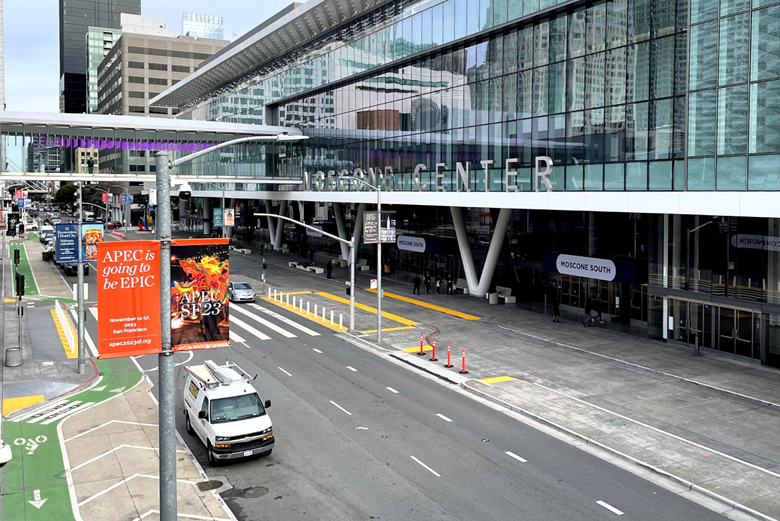
The 2023 APEC Economic Leaders' Week hosted by the United States and chaired by President Joe Biden has commenced in San Francisco.
Under the theme of "Creating a Resilient and Sustainable Future for All", leaders, ministers and officials will further APEC's work across a wide range of policy areas this year including trade and investment facilitation, the digital economy, clean energy and climate, health, gender equity and equality as well as anti-corruption and food security.
Guided by this year's three priorities of interconnected, innovative and inclusive, senior officials are starting off the week-long deliberations under three pillars of engagement: 1) the Digital Pacific pillar to expand access to digital connectivity; 2) the Sustainability pillar to promote sustainable and inclusive energy transition; and 3) the Resilient and Inclusive Growth pillar to deepen economies' ties and improve supply chain resiliency.
"Hosting APEC this year provides the United States with the opportunity to shape trade policies and drive economic growth in a vibrant Asia-Pacific region, which represents nearly 40 percent of the world's population, almost half of global trade and over 60 percent of the global economy," said Ambassador Matt Murray, United States' Senior Official for APEC.
Seven of the United States' top 10 trading partners are APEC members. Businesses from APEC member economies have invested more than USD1.7 trillion in the United States, with these investments employing 2.3 million American workers, Ambassador Murray noted.
"This trade and investment engagement underscores APEC's strategic role in our economic partnerships as this forum remains the premier platform for advancing economic and trade policies, fostering innovative ideas and supporting businesses, particularly small and medium-sized enterprises (SMEs)," Ambassador Murray added.
"By actively participating in regional and global value chains, SMEs overcome trade barriers, expand their presence, drive innovation and access new markets."
This week-long meeting will culminate in the APEC Economic Leaders' Meeting on 16-17 November of which Asia-Pacific leaders will establish strategic agenda and regional goals for the next year guided by President Biden.
Preceding the arrival of APEC Leaders, the United States Secretary of Treasury Janet Yellen will chair the APEC Finance Ministers' Meeting on 13 November. At their meeting, Finance Ministers will focus on policies that increase long-term economic output at the same time addressing progress on social goals such as reducing inequality and environmental damage.
On 14-15 November, Secretary of State Anthony Blinken and the United States Trade Representative Ambassador Katherine Tai will host their foreign and trade counterparts for the APEC Ministerial Meeting.
The APEC CEO Summit will also be held from 14-16 November, drawing business leaders and entrepreneurs from around the region to discuss how to build the future that is driven by sustainability, inclusion, resilience, and innovation.
"At the core, APEC is about how 21 member economies which are very varied in terms of economic development and political structures can sit together in a room, confront the most pressing economic challenges, deliberate on difficult issues and find common ground-all to further initiatives towards a better world," said Dr Rebecca Sta Maria, Executive Director of the APEC Secretariat.
"It is so necessary during this week's set of meetings that we bring member economies together, not to focus on the differences and what divides us, but to focus on what we have been doing these past few years for regional economic integration, for youth, for women, for Indigenous Peoples and for our small businesses, and most importantly, to improve the lives of our citizens," Dr Sta Maria added.
This year marks the 30th anniversary since the first time APEC Economic Leaders met held in Blake Island, Washington, on 20 November 1993 when President Bill Clinton convened the inaugural group to build a new economic foundation for the Asia-Pacific that harnesses the energy of member economies, strengthens cooperation and promotes prosperity.






